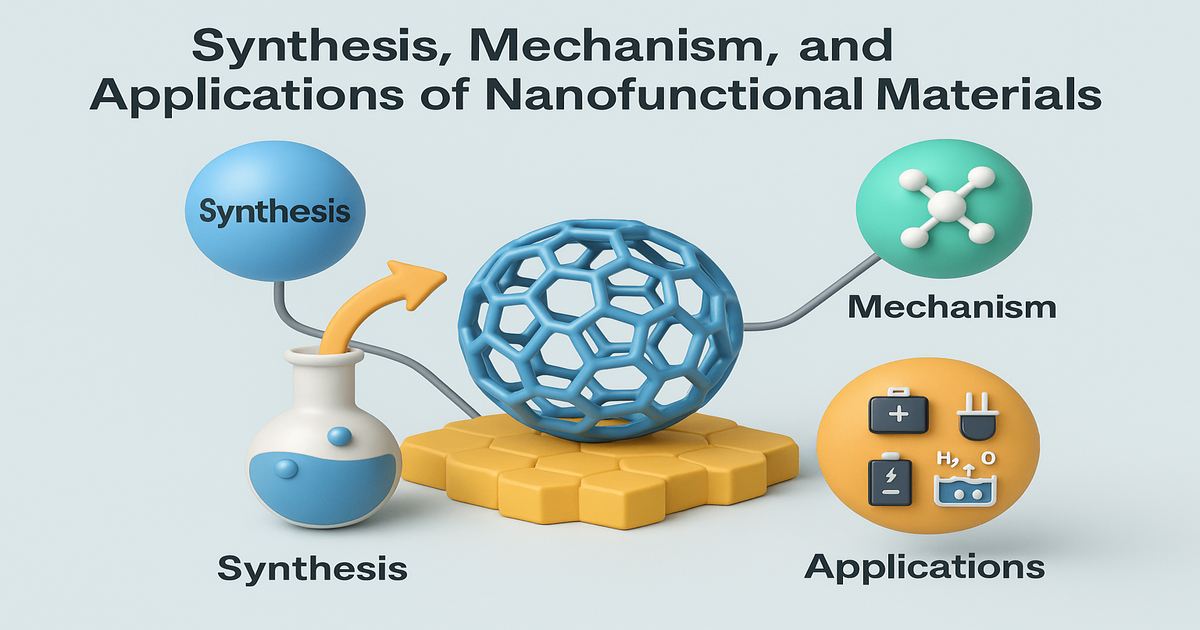- 3.2Impact Factor
- 6.4CiteScore
- 16 daysTime to First Decision
Synthesis, Mechanism, and Applications of Nanofunctional Materials for Energy Storage
This special issue belongs to the section “Energy Materials“.
Special Issue Information
Dear Colleagues,
As the world moves toward cleaner and more sustainable energy systems, the design of advanced materials plays a central role. Nanofunctional materials-engineered at the nanoscale to exhibit unique physical, chemical, and electronic properties-offer remarkable opportunities. Their large surface area, tunable structures, and superior catalytic activity make them especially valuable for energy storage and conversion technologies such as batteries, supercapacitors, fuel cells, and water-splitting devices. Alongside synthesis, understanding the underlying mechanisms of how these materials operate is equally important. Insights into electron transfer, ion transport, surface reactions, and degradation pathways can guide smarter material design and accelerate the transition from laboratory studies to real-world applications.
The main objective of this Special Issue, “Synthesis, Mechanism, and Applications of Nanofunctional Materials for Energy Storage”, is to provide a broad and integrative platform for researchers to showcase their most recent advances in this dynamic field. We welcome original research articles and comprehensive review papers that highlight innovative synthesis strategies, mechanistic insights, and practical applications of nanofunctional materials. Contributions that bridge fundamental understanding with real-world implementation, introduce novel methodologies, or provide interdisciplinary perspectives are particularly encouraged.
Dr. Shiva Kumar Arumugasamy
Guest Editor
Manuscript Submission Information
Manuscripts should be submitted online at www.mdpi.com by registering and logging in to this website. Once you are registered, click here to go to the submission form. Manuscripts can be submitted until the deadline. All submissions that pass pre-check are peer-reviewed. Accepted papers will be published continuously in the journal (as soon as accepted) and will be listed together on the special issue website. Research articles, review articles as well as short communications are invited. For planned papers, a title and short abstract (about 250 words) can be sent to the Editorial Office for assessment.
Submitted manuscripts should not have been published previously, nor be under consideration for publication elsewhere (except conference proceedings papers). All manuscripts are thoroughly refereed through a single-blind peer-review process. A guide for authors and other relevant information for submission of manuscripts is available on the Instructions for Authors page. Materials is an international peer-reviewed open access semimonthly journal published by MDPI.
Please visit the Instructions for Authors page before submitting a manuscript. The Article Processing Charge (APC) for publication in this open access journal is 2600 CHF (Swiss Francs). Submitted papers should be well formatted and use good English. Authors may use MDPI's English editing service prior to publication or during author revisions.
Keywords
- nanofunctional materials
- synthesis strategies
- reaction mechanisms
- electrocatalysis and Photocatalysis
- energy storage and conversion devices
- sustainable/green synthesis
- water splitting (HER/OER)
- fuel cells
- batteries & supercapacitors
- in situ/operando characterization

Benefits of Publishing in a Special Issue
- Ease of navigation: Grouping papers by topic helps scholars navigate broad scope journals more efficiently.
- Greater discoverability: Special Issues support the reach and impact of scientific research. Articles in Special Issues are more discoverable and cited more frequently.
- Expansion of research network: Special Issues facilitate connections among authors, fostering scientific collaborations.
- External promotion: Articles in Special Issues are often promoted through the journal's social media, increasing their visibility.
- e-Book format: Special Issues with more than 10 articles can be published as dedicated e-books, ensuring wide and rapid dissemination.

